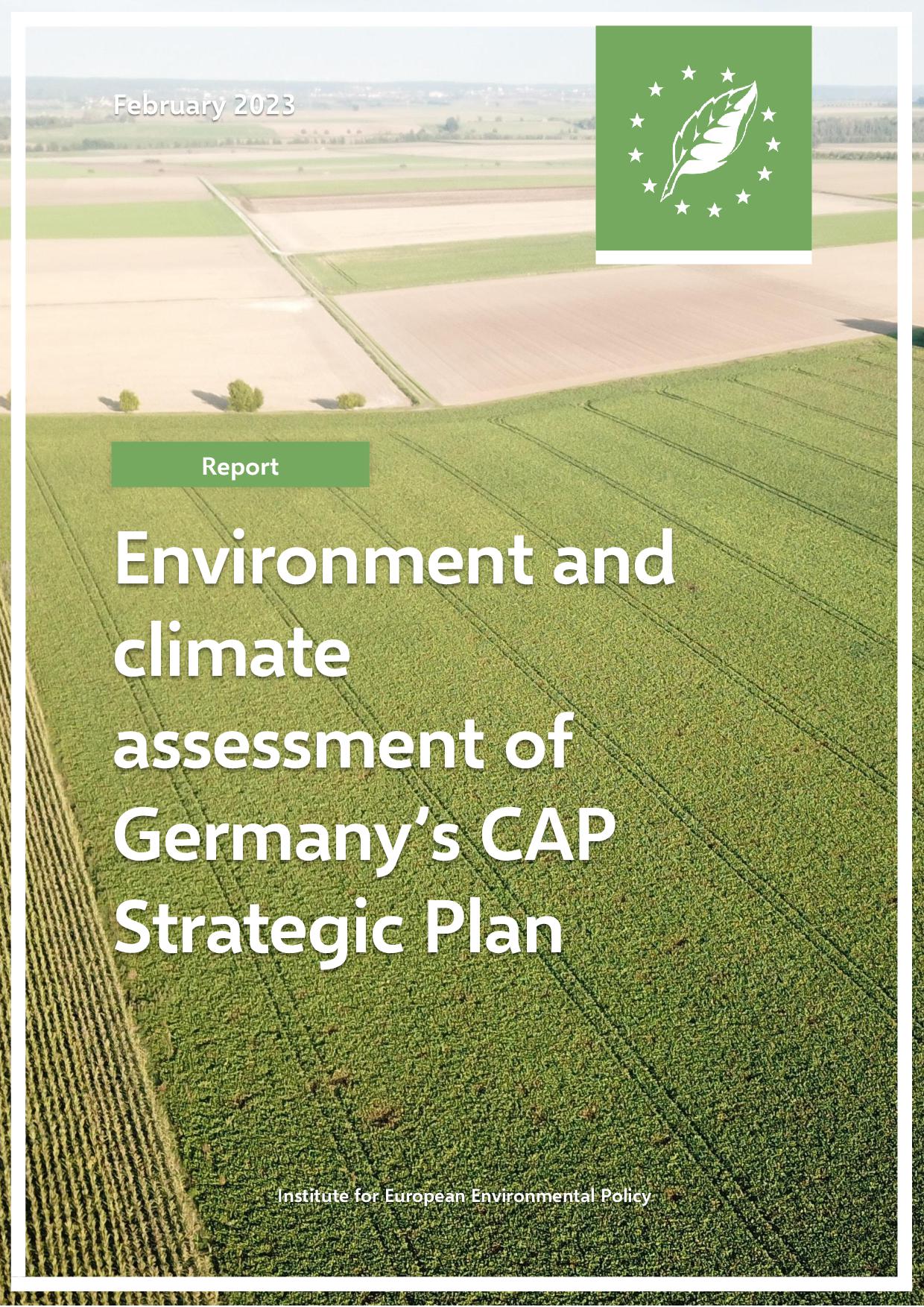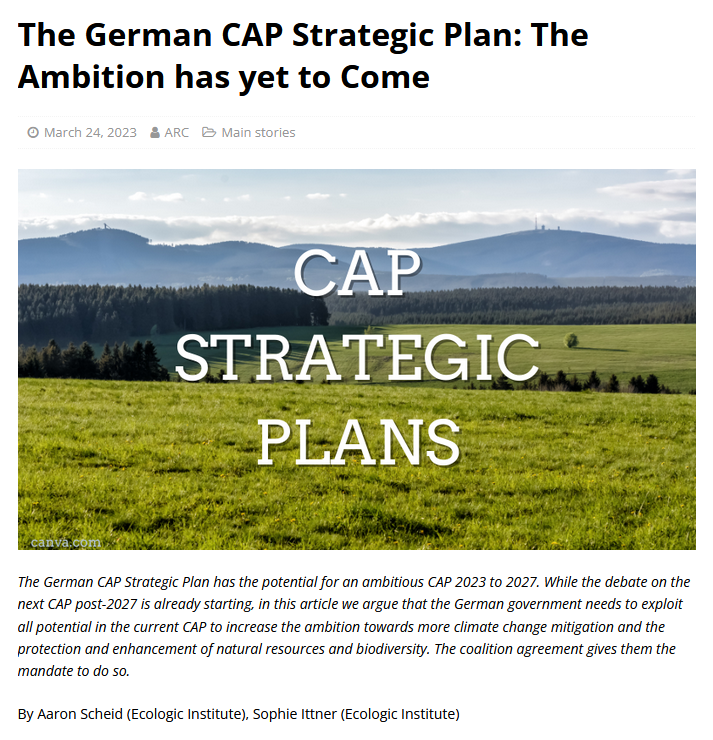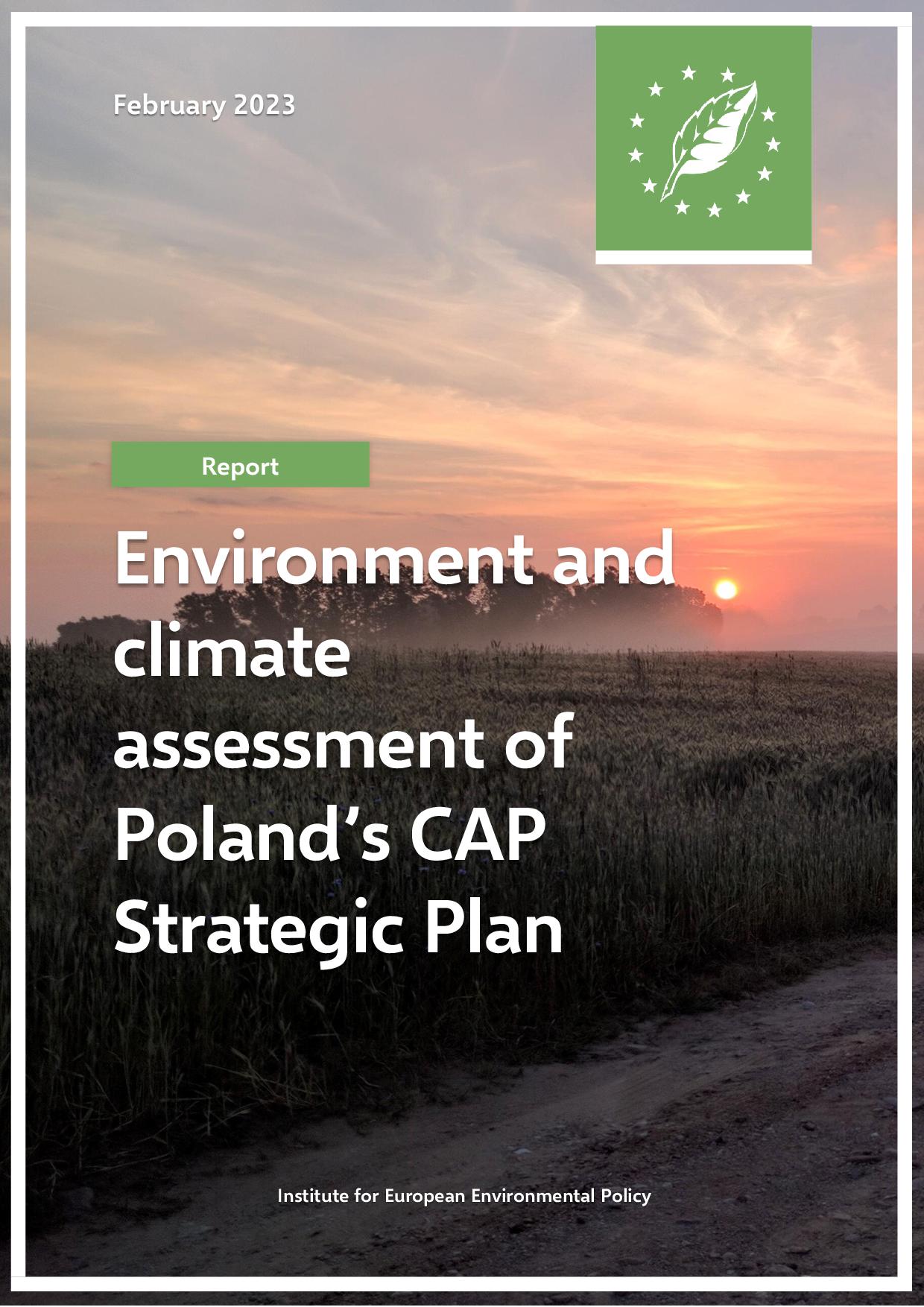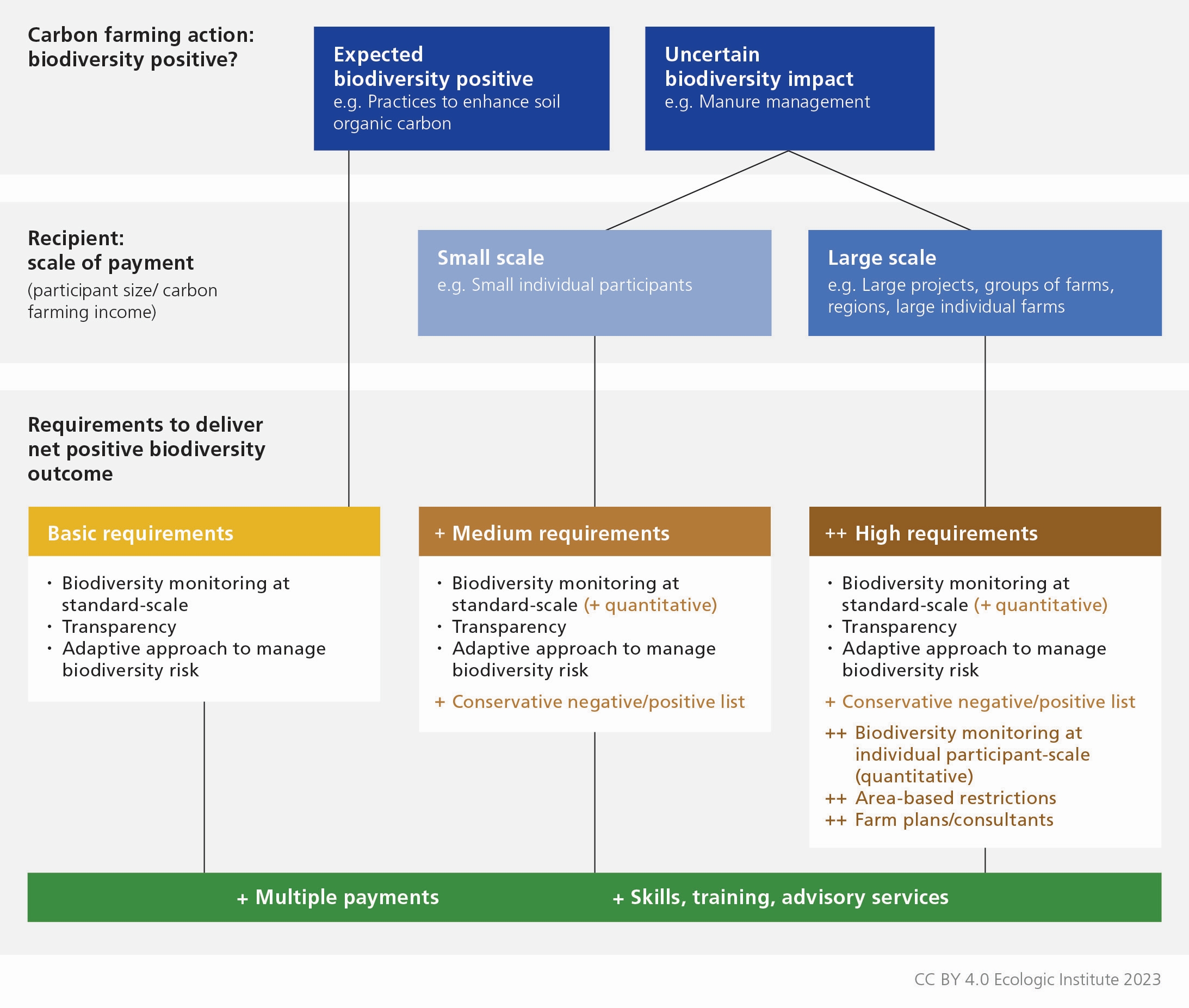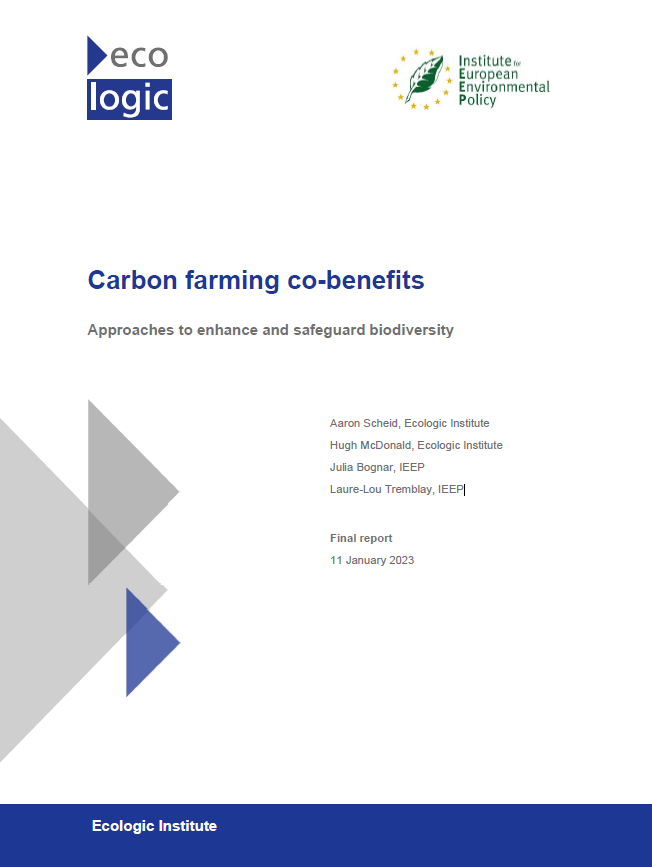Environment and Climate Assessment of Germany's Cap Strategic Plan
- Publication
- Citation
Scheid, A. and S. Ittner (2023) 'Assessment of the German CAP Strategic Plan: environmental and climate contributions', Policy report, Institute for European Environmental Policy and Ecologic Institute
This report identifies and assesses the likely contribution of Germany's CAP Strategic Plan to climate mitigation and adaptation, natural resources, and biodiversity protection. Overall, the findings are that there is potential for an ambitious CAP 2023-2027 period with regards to the protection of environmental, biodiversity and climate. However, the current German Strategic Plan for 2023 falls short of expectations with vast room for improvement, which need to be used in the years until 2027.
The current European Union food system has considerable impacts on the climate and environment, being responsible for an estimated 30% of the continent's GHG emissions. The agriculture sector also puts immense pressure on biodiversity, as it is a significant contributor to soil degradation and reductions in water quality and availability. The ecological transition of agri-food systems is therefore necessary and urgent, and the EU Common Agricultural Policy (CAP), is the main funding opportunity available for this purpose.
Our analysis reveals that the German Plan has a particularly strong gap with regards to climate objectives, where first pillar measures hardly contribute to climate change mitigation. The Strategic Plan sets a clear focus on the protection and enhancement of biodiversity, which is positive. Here too, however, the potential low uptake by federal states and low renumeration for farmers could limit the ultimate impact. With regards to the pressing problems related to surface water, coastal waters and groundwater bodies in Germany, the Strategic Plan only implements the absolute minimum in relation to the enhanced conditionality, whereas the incentives for voluntary interventions remain low, along with missing interventions to reduce nutrient and nitrogen losses.
Member States' CAP Strategic Plans can be amended once per year, and according to the coalition agreement of the German government the current architecture will be reviewed around the end of 2023 and adapted if necessary. In addition, the German coalition agreement promises to replace the direct payments by 2027 by rewarding climate and environmental services. The coalition agreement offers a good basis to increase the ambition towards more climate change mitigation and the protection and enhancement of natural resources and biodiversity within the CAP period of 2023-2027.
To improve the potential impact of CAP spending, the report proposes two sets of recommendations: 1) on potential amendments to Germany's plan in the current period and 2) on recommendations for the next CAP and for other related policies. For Germany, we recommend to:
- Ensure that there are no further derogations to the enhanced conditionality after 2023. The exemption in 2023 on crop diversification (GAEC 7) and on non-productive areas or features (GAEC 8) must remain an exception.
- Increase width of buffer strips within GAEC 4 to a minimum of 5 metres to achieve a uniform baseline for buffer strips through the regions, including the prohibition of pesticide and fertilizer usage in these buffer strips.
- Increase the allocation of budget to the eco-schemes to the minimum of 25%.
- Introduce eco-schemes to reduce nutrients and nitrogen losses.
- Apply increasing unit amounts per additional percentage for the eco-scheme on non-productive land (DZ-0401), to incentivise farmers to increase their non-productive land to the maximum of 6%, to meet the EU Biodiversity Strategy target of a total of 10% non-productive land.
- Ensure that the federal states are implementing a minimum set of rural development interventions in Pillar II, which are highly beneficial for climate change mitigation and the protection and enhancement of natural resources and biodiversity, taking regional characteristics into consideration. This could be agreed in the upcoming Conference of German Ministers of Agriculture in March 2023, based on a positive list proposed by the Federal Ministry of Food and Agriculture.
- Phase out direct payments on drained peatlands (organic soils), while using eco-schemes and rural development interventions to prepare the long-term rewetting of peatlands. These measures include the conversion of arable land on organic soils to grassland, the extensification of the use of peatland grassland, and the reduction of livestock in these areas.
- Introduce interventions that support mixed-crop livestock systems, a high on-farm feed production ratio and the reduction of livestock units per hectare at farm level, especially in regions with high livestock density.
